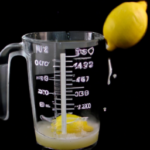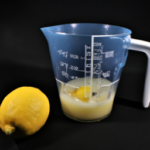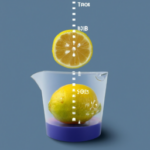Juice
How Much Lemon Juice In Half Lemon

As an individual who enjoys both cooking and baking, I frequently catch myself pondering over the exact amounts of ingredients required. Lemon juice stands out as one ingredient that’s especially challenging to quantify accurately.
Specifically, when a recipe calls for half a lemon’s worth of juice, how much juice should you expect to get?
To answer this question, I’ve done some research into the average amount of juice in a lemon, as well as tips for getting the most juice out of a lemon. Additionally, I’ll explore the different varieties of lemons and their flavor profiles, as well as substitutes for lemon juice and the health benefits of consuming lemons.
Whether you’re a seasoned chef or a novice cook, understanding the nuances of lemon juice measurement can make a big difference in the success of your culinary creations.
Key Takeaways
- The amount of lemon juice extracted can be affected by factors such as size, ripeness, extraction method, and temperature.
- On average, a medium-sized lemon yields about 2-3 tablespoons of juice.
- Rolling or using a citrus reamer can help extract more juice from a lemon.
- Measuring lemon juice can be done using measuring spoons, clear measuring cups, or by weight.
Understanding the Challenge
You’re probably wondering how much lemon juice you can get out of just half a lemon, right? Well, the answer is not as straightforward as you might think. It depends on a variety of factors, such as the size and ripeness of the lemon, the method used to extract the juice, and even the temperature of the fruit.
Exploring alternatives to the traditional method of squeezing the lemon by hand can also affect the amount of juice obtained. Some people swear by microwaving the lemon for a few seconds or rolling it on a hard surface before cutting it in half. However, common misconceptions about these methods and their effectiveness still exist.
It’s important to understand the science behind lemon juice extraction to get the most out of your fruit.
When it comes to the average amount of juice in a lemon, there are some general guidelines that can be helpful. But before we dive into that, let’s take a closer look at the factors that affect the amount of juice in a lemon.
The Average Amount of Juice in a Lemon
When cutting a lemon in half, you’ll notice a significant amount of liquid that can fill a small cup. The average amount of juice in a lemon can vary depending on the size and ripeness of the fruit. However, on average, a medium-sized lemon can yield about 2-3 tablespoons of juice.
Lemon juice is not only a popular ingredient in cocktails, but it also has numerous health benefits. Drinking lemon water can aid in digestion, boost the immune system, and even improve skin health. Incorporating lemon juice into your daily routine can be a simple and effective way to improve your overall health.
Moving on to estimating the amount of juice in half a lemon, there are a few methods that can be used.
Estimating the Amount of Juice in Half a Lemon
If you’re looking to add some tangy flavor to your dish or drink, a quick squeeze of this zesty citrus might just do the trick. But how much juice can you expect from half a lemon?
Here are some tips for estimating the amount of juice in half a lemon with reasonable accuracy:
-
Use a measuring spoon: A tablespoon can hold approximately 15 milliliters of liquid, which is roughly equivalent to the juice of half a lemon. However, this method can be imprecise due to variations in lemon size and juiciness.
-
Squeeze over a clear measuring cup: Squeezing the juice of half a lemon into a clear measuring cup can provide a more accurate estimate of the amount of juice produced. This method also allows you to adjust the amount of juice added to your recipe according to your taste.
-
Consider the lemon’s weight: On average, a medium-sized lemon weighs around 110 grams and yields about 40 milliliters of juice. This means that half a lemon weighs approximately 55 grams and can produce around 20 milliliters of juice.
Estimating the amount of juice in half a lemon can be a tricky task, but using measuring tools and considering the weight of the lemon can help you get a more accurate estimate. Now that you know how much juice to expect, let’s move on to some tips for getting the most juice out of a lemon.
Tips for Getting the Most Juice Out of a Lemon
To really maximize your lemon’s potential, try rolling it on a hard surface before cutting and squeezing it to release every last drop of its tangy goodness. Another great way to get the most out of your lemon is by using a citrus reamer. This tool allows you to easily extract every bit of juice from the fruit, leaving nothing behind.
If you’re looking to add some extra flavor to your dish, don’t forget about the lemon zest! The outer layer of the lemon peel contains oils that are bursting with flavor. Simply use a zester or a microplane to grate the peel and sprinkle it over your dish. Not only will it add a delicious citrus flavor, but it also provides a beautiful pop of color. With these tips, you’ll be able to make the most out of your lemons and take your cooking to the next level.
Moving on to other ways to use lemons in cooking, there are plenty of options to choose from.
Other Ways to Use Lemons in Cooking
You can elevate the flavor of your dishes by incorporating the bright and zesty taste of fresh lemons in various ways. Here are some lemon recipes and preservation methods that you can try:
-
Make a delicious salad dressing by mixing lemon juice, olive oil, honey, Dijon mustard, and salt. This is also known as a lemon vinaigrette.
-
Create a lemon curd filling with fresh lemon juice, eggs, sugar, and butter, then bake it on top of a shortbread crust to make lemon bars.
-
Cut lemons into quarters and pack them in a jar with salt, lemon juice, and spices to make preserved lemons. Leave it to ferment for a few weeks, then use the tangy lemon rind in stews, couscous, or pasta dishes.
-
Freeze lemon juice in an ice cube tray, then add it to water or cocktails for a refreshing citrus kick. This is also known as lemon ice cubes.
Incorporating lemons in your cooking not only adds flavor but also provides health benefits such as vitamin C and antioxidants. However, different lemon varieties have varying levels of acidity and sweetness, which can affect the overall taste of your dish. In the next section, we’ll explore the different lemon varieties and flavor profiles to help you choose the best one for your recipe.
Lemon Varieties and Flavor Profiles
Did you know that the type of lemon you choose can greatly impact the taste of your dish? Lemon flavor profiles vary depending on the variety of the fruit.
For example, Eureka lemons have a tart and acidic flavor, while Meyer lemons have a sweeter and less acidic taste. The Lisbon lemon falls in between these two in terms of tartness and acidity.
Understanding the flavor profiles of different lemon varieties can help you create the perfect flavor balance in your favorite lemon dishes. When it comes to popular lemon dishes, the type of lemon you choose can make all the difference.
For instance, Eureka lemons are a great choice for savory dishes like roasted chicken or grilled fish, where their tartness can be balanced by other flavors and ingredients. On the other hand, Meyer lemons are ideal for sweet dishes like lemon bars or lemon curd, where their sweetness can shine through.
By choosing the right lemon variety for your recipe, you can take your dish to the next level. Speaking of taking things to the next level, let’s talk about storing your lemons.
Storing Lemons
In order to fully enjoy the taste of lemons, it is important to store them properly. Preserving freshness and preventing spoilage are key factors to consider when storing lemons. There are different storage methods that can help prolong the life of lemons and keep them fresh for longer periods of time.
One common method is to store lemons at room temperature, away from direct sunlight and heat. Another technique is to store lemons in the refrigerator, preferably in a plastic bag to keep them from drying out. Alternatively, you can also freeze lemons by cutting them in half and placing them in a freezer bag. This is a great option if you have an abundance of lemons and want to use them later for juicing or cooking.
When it comes to storing lemons, it is important to keep in mind their perishable nature. By following these storage methods, you can ensure that your lemons stay fresh for longer and prevent unnecessary waste. Now, let’s explore some substitutes for lemon juice.
Substitutes for Lemon Juice
When I don’t have lemon juice on hand, I turn to other citrus fruits as a substitute. Lime, grapefruit, and orange juices can all be used in place of lemon juice, though their flavors may differ slightly.
Vinegars, such as apple cider or white wine vinegar, can also be used as a substitute for lemon juice in recipes. Another option is to use cream of tartar, a byproduct of winemaking that can add a tangy flavor similar to lemon juice.
Other Citrus Fruits
You’ll often find that other citrus fruits, such as oranges and grapefruits, can add a unique and tangy flavor to your dishes. These fruits are also packed with nutrients that offer a wide range of health benefits. Here are some reasons why you should incorporate more citrus fruits into your diet:
-
Lime vs grapefruit: Both limes and grapefruits are excellent sources of vitamin C, potassium, and other essential nutrients. However, grapefruits are lower in calories and higher in fiber, making them a great choice for those looking to lose weight or maintain a healthy diet.
-
Boosts immune system: Citrus fruits are well-known for their high vitamin C content, which helps boost your immune system and protect against infections and diseases.
-
Lowers risk of chronic diseases: The antioxidants found in citrus fruits can help reduce inflammation and lower your risk of chronic diseases, such as heart disease and cancer.
-
Improves digestion: The fiber found in citrus fruits can help improve digestion and prevent constipation.
Incorporating more citrus fruits into your diet is a simple way to boost your health and add flavor to your meals. Now, let’s move on to the next section where we’ll explore the benefits of using vinegars in your cooking.
Vinegars
To spice up your meals, why not try adding a splash of vinegar? Vinegars come in various types, each with its distinct flavor profile that can elevate the taste of your dishes.
If you run out of lemon juice, you can use vinegar as a substitute in some recipes, such as salad dressings, marinades, and sauces. Using vinegars in cooking is not only a great way to add flavor, but it also has health benefits.
Studies have shown that vinegar can help regulate blood sugar levels and aid in digestion. Apple cider vinegar, in particular, has been linked to weight loss and improved cholesterol levels. So next time you’re looking to add some zing to your meal, grab a bottle of vinegar and experiment with different flavors to find your perfect match.
When it comes to baking, vinegar can also be used as a leavening agent. In the next section, we’ll explore another ingredient commonly used in baking – cream of tartar.
Cream of Tartar
Cream of tartar is a powdery substance that’s chemically known as potassium bitartrate. It’s a byproduct of wine production and can be found in the baking aisle of your local grocery store.
This substance is commonly used in baking as it helps to stabilize egg whites when making meringues and angel food cakes. It’s also used as a leavening agent in some recipes.
The uses and benefits of cream of tartar go beyond the kitchen. It’s been found to have some health benefits, such as aiding in digestion and reducing joint pain. However, it should be noted that the scientific evidence supporting these claims is limited.
If you’re looking for alternatives and substitutes for cream of tartar, you can use lemon juice or vinegar in its place. These options are acidic and can help achieve similar results in baking recipes.
Lemon juice in health and wellness has been a topic of interest for many years. It’s packed with vitamin C, which is essential for a healthy immune system. Additionally, lemon juice has been found to aid in digestion, promote weight loss, and even improve skin health.
So, if you’re looking for a natural way to improve your overall health and wellness, incorporating lemon juice into your diet may be beneficial.
Lemon Juice in Health and Wellness
As someone who strives to maintain good health, I’m always interested in learning about the benefits of different foods and ingredients.
When it comes to lemon juice, there are several health and wellness benefits to consider. Lemon juice is an excellent source of vitamin C and antioxidants, which can boost immunity and protect against disease.
Additionally, lemon juice can aid in digestive health and promote healthy skin, making it a valuable addition to any diet.
Vitamin C and Antioxidants
Lemon juice is a great source of vitamin C and antioxidants, both of which are essential for maintaining a healthy immune system. Vitamin C is a powerful antioxidant that helps protect against free radicals, which can damage cells and contribute to the development of chronic diseases. Additionally, vitamin C is important for the production of collagen, a protein that supports healthy skin, bones, and connective tissue.
There are many benefits of vitamin C, and incorporating lemon juice into your diet is a great way to take advantage of them. Lemon juice can be used in a variety of recipes, from salad dressings to marinades to smoothies. Adding a squeeze of lemon juice to water can also help increase your hydration and provide a refreshing, citrus flavor.
Moving on to the next section, digestive health is also an important aspect of overall wellness.
Digestive Health
Maintaining good digestive health is crucial for overall well-being, and incorporating fiber-rich foods and probiotics into your diet can help regulate digestion and promote gut health. However, there are also other natural remedies that can aid in digestion, such as lemon water.
Drinking lemon water has been reported to help with constipation and bloating, as well as promoting hydration, which is essential for healthy digestion. The benefits of lemon water can be attributed to the high amount of vitamin C and antioxidants present in lemon juice, which can help reduce inflammation in the gut and improve the absorption of nutrients.
In addition to drinking lemon water, adding lemon juice to your meals or using it as a detox ingredient can also have positive effects on your digestive health. Lemon juice is known for its cleansing properties, which can help flush out toxins and waste from the body. The citric acid present in lemon juice can also stimulate the production of digestive juices, which can aid in digestion.
Incorporating lemon juice in your diet can be as simple as adding it to your salad dressing or using it as a marinade for your proteins. With its numerous benefits, adding lemon juice to your diet can promote a healthy gut and overall well-being.
Transitioning to the subsequent section about skin care, it’s important to note that what we put into our bodies can also affect our skin health.
Skin Care
Taking care of your skin is a piece of cake with the right products and routine. One of my favorite DIY skin care treatments is a lemon face mask.
Lemon juice is a natural source of vitamin C, an antioxidant that can improve skin texture and reduce the appearance of fine lines and wrinkles. The acid in lemon juice can also help exfoliate dead skin cells and unclog pores, leaving your skin looking brighter and clearer.
To make a simple lemon face mask, mix equal parts lemon juice and honey and apply it to your face for 10-15 minutes before rinsing off with warm water. You can also add a drop or two of lemon essential oil to your daily moisturizer for an added boost of vitamin C.
In addition to its skin care benefits, lemon essential oil has been shown to have antibacterial and antifungal properties, making it a great addition to your overall health and wellness routine.
Frequently Asked Questions
What are some alternative ways to get lemon juice besides using a fresh lemon?
I have found that lemon juice substitutes, such as bottled lemon juice or citric acid, can be used in place of fresh lemon juice. However, it’s important to note that the benefits of lemon water may be diminished with these alternatives.
Can you freeze lemon juice for later use?
Yes, lemon juice can be frozen for later use. To maintain its quality, store it in an airtight container or freezer bag, removing as much air as possible. Thaw in the refrigerator and use within 6 months.
How long can you keep lemon juice before it goes bad?
Lemon juice can last up to 2-3 days in the fridge, but to extend its shelf life, consider storing it in a glass container and adding a layer of plastic wrap. Expired juice can be used for cleaning or as a natural fertilizer.
What are some potential health benefits of consuming lemon juice?
As someone who values evidence-based information, I can confidently say that consuming lemon juice has potential detox benefits and immune-boosting properties. Research suggests that lemon juice may support liver function and enhance the body’s defenses against infection.
How can you tell if a lemon is ripe and ready to use for juicing?
As a citrus farmer, I know that the best time to pick lemons is when they are fully yellow. To check for ripeness, gently squeeze the fruit – it should give slightly and have a fragrant aroma.
Conclusion
In conclusion, the question of how much lemon juice is in half a lemon has been thoroughly explored. While the amount of juice in a lemon can vary, on average, half a lemon will yield about 1 tablespoon of juice. However, it’s important to note that there are several factors that can affect the amount of juice obtained from a lemon, such as its ripeness and the method used to extract the juice.
To maximize the amount of juice obtained from a lemon, it’s recommended to roll the lemon on a hard surface before cutting and juicing it. Additionally, using a citrus juicer or hand-held reamer can also help to extract more juice.
In cooking and baking, lemons can be used for a variety of purposes, including adding flavor to dishes and desserts, tenderizing meat, and preserving fruits and vegetables.
Overall, understanding the amount of juice in a lemon and how to effectively extract it can greatly enhance one’s culinary skills. While there are substitutes for lemon juice, such as vinegar or other citrus juices, the unique flavor profile of lemons makes them a valuable ingredient in any kitchen.
So, the next time you encounter a lemon, remember to roll it, juice it, and savor its tart, refreshing taste.
Ilana has been a vegan for over 10 years. She originally made the switch for health reasons, but soon found herself becoming more and more passionate about the ethical and environmental implications of a vegan lifestyle. Ilana is the author of The Graceful Kitchen, a blog all about veganism. She loves to cook up delicious and nutritious vegan meals, and share her recipes with others who are interested in leading a cruelty-free life. Ilana is also a strong advocate for using whole foods as the foundation of a healthy diet, and believes that going vegan is one of the best ways to achieve this.
Juice
How To Freeze Peaches Without Lemon Juice

As a lover of all things fruity and sweet, I eagerly look forward to peach season every year. There’s nothing quite like biting into a juicy, ripe peach on a hot summer day. However, sometimes I end up with more peaches than I can eat before they go bad. That’s when freezing them comes in handy, preserving the taste of summer for months to come.
However, many recipes for freezing peaches call for lemon juice, which can alter the natural flavor of the fruit. As someone who wants to enjoy the pure taste of peaches, I’ve developed a method for freezing them without using lemon juice.
In this article, I’ll share my step-by-step process for freezing peaches without any added ingredients, so you can enjoy the full, sweet flavor of summer peaches all year round.
Key Takeaways
- Peeling and slicing peaches makes them easier to use
- Blanching peaches can make peeling easier
- Too much sugar syrup can affect the texture and taste of peaches
- Frozen peaches can last up to 6 months
Choosing the Right Peaches
You’ll want to make sure you pick the juiciest, most flavorful peaches – they’ll make all the difference in your frozen treats!
When it comes to peach ripeness, you’ll want to choose peaches that are fully ripe, but not overripe. Look for peaches that are slightly soft to the touch, with a sweet aroma. Avoid peaches that are hard or have green patches, as these aren’t yet ripe enough to use.
Another important factor to consider is the flavor profile of the peach. Different varieties of peaches have varying levels of sweetness and tartness, so choose a variety that suits your taste buds.
For example, if you like your peaches on the sweeter side, look for varieties like the Elberta or O’Henry. If you prefer a more tart flavor, the Red Haven or Loring may be better options.
Once you’ve chosen your perfect peaches, it’s time to move on to preparing them for freezing.
Preparing Your Peaches
Before freezing your peaches, it’s important to prepare them properly.
First, I like to wash and dry the peaches thoroughly to remove any dirt or debris.
Then, I use a peeler to remove the skin and slice the peaches into pieces that are the perfect size for my recipes.
These steps ensure that my frozen peaches are clean, easy to use, and ready to be enjoyed whenever I want.
Washing and Drying
After picking fresh peaches, it’s important to gently wash and pat them dry before beginning the freezing process. This step is crucial in ensuring that the peaches remain fresh and free from any dirt or debris.
Here are some tips for washing and drying your peaches:
-
Importance of ripeness: Make sure your peaches are fully ripe before washing them. This will ensure that they have the best flavor and texture when you freeze them.
-
Drying techniques: To dry your peaches, gently wipe them with a clean cloth or paper towel. Avoid using a harsh scrubbing motion as this can damage the delicate skin of the peaches.
-
Air drying: Alternatively, you can also air dry your peaches by placing them on a clean towel or rack and leaving them to dry naturally. This method may take longer but it’s a great way to avoid any damage to the peaches.
Once your peaches are washed and dried, you’re ready to move on to peeling and slicing them for freezing.
Peeling and Slicing
As you sink your teeth into a juicy peach, imagine how satisfying it would be to slice and peel them for freezing. Before you start slicing, it’s important to peel your peaches. You can use a vegetable peeler or a knife to remove the skin. If the peach is ripe, the skin should come off easily. If you’re struggling, try blanching the peaches to loosen the skin.
Blanching is a technique that involves boiling the peaches for a short period of time and then immediately transferring them to an ice bath to stop the cooking process. This will cause the skin to loosen, making peeling much easier.
Once you have peeled your peaches, it’s time to slice them. You can slice them into wedges or cubes, whatever works best for you. It’s important to note that frozen peaches tend to be a bit softer than fresh ones, so you may want to slice them a bit thicker than you normally would.
If you don’t want to use the blanching technique, there are other freezing alternatives. You can simply slice and freeze the peaches as they are, or you can add a bit of sugar or ascorbic acid to help preserve their color and texture.
With your peaches sliced and ready to go, it’s time to move on to treating them before freezing.
Treating Your Peaches
First, you’ll need to wash your peaches thoroughly to remove any dirt or debris. Once your peaches are clean, you can start treating them.
Blanching peaches is a great way to remove the skin without losing any of the fruit’s flavor. To do this, bring a large pot of water to a boil and drop in your peaches for about 30 seconds. Use a slotted spoon to remove the peaches, and immediately transfer them to a bowl of ice water. This will stop the cooking process and make it easier to remove the skin. Once the peaches are cool enough to handle, you can easily peel off the skin with a knife or your fingers.
After blanching and peeling your peaches, it’s time to treat them with a sugar syrup. This will help preserve the peaches and keep them from browning. To make the syrup, combine equal parts sugar and water in a saucepan and heat until the sugar dissolves. Allow the syrup to cool completely.
Once the syrup is cool, you can add your peaches and let them soak for about 10 minutes. This will give them a nice sweet flavor and help keep them fresh. Now that your peaches are blanched, peeled, and treated with sugar syrup, you’re ready to freeze them.
Note: Avoid using too much sugar syrup as it can affect the texture and taste of the peaches.
Freezing Your Peaches
Now that we have prepared our peaches, it’s time to freeze them without using lemon juice. To achieve this, we will be using a sugar substitute and blanching the fruit. The sugar substitute will help preserve the color and flavor of the peaches, while blanching will help remove the skin easily.
To start, let’s prepare the sugar substitute. In a mixing bowl, combine 1 cup of sugar substitute with 1 cup of water and stir until the sugar substitute is dissolved. Next, we will blanch the peaches. Bring a large pot of water to a boil and carefully place the peaches in the boiling water for 30 seconds to 1 minute. Remove the peaches from the boiling water and immediately transfer them to a bowl of ice water to stop the cooking process. Once the peaches have cooled, remove the skin and pit them. Finally, slice the peaches into desired sizes and place them in a freezer-safe container. Pour the sugar substitute solution over the peaches until they are completely covered and freeze them for up to 6 months.
With our peaches now frozen, it’s time to move on to the final step of storing them properly.
Storing Your Frozen Peaches
When it comes to storing your frozen peaches, there are a couple of key points to consider. First, it’s important to choose the right container to store your peaches in. I like to use freezer-safe bags or containers with tight-fitting lids to keep my peaches fresh and prevent freezer burn.
Second, labeling your containers is crucial to avoid confusing your peaches with other frozen fruits or vegetables. I always make sure to write the date and contents on each container so I can easily identify what’s inside and when I froze it.
Containers
To ensure your frozen peaches stay fresh, it’s important to choose the right container. Mason jars are a great option because they’re sturdy, airtight, and reusable. They won’t leak, which helps keep your freezer clean. Make sure to leave some headspace at the top of the jar to allow for expansion during freezing. This will prevent your jars from cracking or breaking in the freezer.
Another option for freezing peaches is to use plastic bags. Make sure to choose freezer-safe bags that are thick and durable. These bags will protect your peaches from freezer burn and prevent any leaks. When filling the bags, try to remove as much air as possible before sealing. This will help prevent ice crystals from forming and keep your peaches fresh for longer.
Now that you have chosen the right container for your frozen peaches, it’s important to label them with the date and contents. This will help you keep track of how long they’ve been in the freezer and make it easier to find them when you need them.
In the next section, we’ll discuss the importance of labeling your frozen peaches in more detail.
Labeling
Labeling your frozen peaches is essential to ensure that you don’t end up with a bunch of anonymous fruits in your freezer. When it comes to labeling tips, use a permanent marker to write the date of freezing, the quantity, and any other relevant information. This way, you’ll know how long the peaches have been in your freezer and when they’ll expire.
It’s also helpful to include the type of peaches you have frozen, especially if you have multiple varieties. The importance of storage date cannot be overstated. Not only does it help you keep track of how long the peaches have been frozen, but it also helps you plan your meals accordingly.
You can easily determine which bags or containers of peaches need to be used up first based on the date of freezing. And when it comes to thawing your peaches, you’ll have a better idea of how long they’ve been frozen and whether they’re still good to eat. Speaking of thawing, let’s discuss the next step in the process.
Thawing Your Peaches
When thawing my frozen peaches, I usually have two options: refrigeration or room temperature. If I plan ahead, I prefer to thaw my peaches in the refrigerator overnight. This method allows for a slow, even thaw and results in firmer peaches with less juice.
I’ve found that when I thaw peaches at room temperature, they tend to become mushy and lose their texture. So, I always opt for refrigeration when possible. Plus, it’s a hands-off approach that requires minimal effort on my part.
Refrigeration
If you’re short on time, the quickest way to preserve your peaches is by refrigerating them. This method is perfect if you plan to use the peaches within a few days. Storing peaches in the fridge will slow down the ripening process, which means they’ll stay fresh for longer. Here’s a table to help you better understand the different storing options and the shelf life of peaches:
| Storing Option | Shelf Life |
|---|---|
| Room Temperature | 1-2 Days |
| Refrigeration | 3-5 Days |
| Freezing | 8-12 Months |
As you can see, refrigeration can extend the shelf life of your peaches by a few more days. However, if you plan to keep your peaches for an extended period, it’s better to freeze them. In the next section, I’ll explain how to freeze peaches without lemon juice.
Room Temperature
Sometimes, you just can’t resist the sweet scent of a fresh peach sitting on your kitchen counter at room temperature. And the good news is, room temperature storage can actually benefit your peaches!
When kept at room temperature, peaches continue to ripen and become softer and juicier. Plus, they’ll retain more of their natural flavor and nutrients.
But there are some best practices for handling room temperature peaches. First, make sure to keep them out of direct sunlight or heat sources, which can cause them to spoil more quickly. Second, inspect them regularly for any signs of bruising or mold, and remove any damaged fruit immediately. And finally, consume them within a few days of purchase for the best taste and texture.
Now that you’ve enjoyed your fresh peaches at room temperature, it’s time to freeze the rest for later use.
Using Your Frozen Peaches
Now that I’ve got my peaches frozen, I can’t wait to start using them in my baking, smoothies, and sauces.
When it comes to baking, frozen peaches are a great addition to pies, cobblers, and muffins.
For smoothies, I like to blend them with some yogurt and honey for a delicious and healthy treat.
Lastly, frozen peaches can also be used to make a sweet and tangy sauce that goes well with pork or chicken dishes.
Baking
You can easily add frozen peaches to your favorite baking recipes, giving your treats a sweet burst of flavor that will knock your socks off. Whether you’re making peach cobbler, peach pie, or peach muffins, frozen peaches are a great way to infuse your baked goods with the taste of summer all year round.
To help you get started, here are some recipe variations you can try with your frozen peaches:
| Recipe | Variation |
|---|---|
| Peach cobbler | Add crumbled graham crackers to the topping for a crunchy texture |
| Peach pie | Mix in some cinnamon and nutmeg for a warm, spicy flavor |
| Peach muffins | Top with a streusel made from brown sugar, flour, and butter |
When it comes to storage hacks, you can freeze your peaches in portioned sizes so that you can easily grab what you need for your recipe. Simply place sliced peaches on a baking sheet and freeze until solid, then transfer them to a freezer-safe bag. This way, you won’t have to worry about thawing more than you need.
Now that you know how to incorporate frozen peaches into your baking, let’s move on to the next section and learn how to make delicious peach smoothies.
Smoothies
Indulge in the sweet, creamy goodness of a peach smoothie, bursting with the taste of summer. Smoothies are a great way to use up the abundance of peaches you have on hand, and they make for a healthy and refreshing snack or breakfast option.
Here are three smoothie recipes you can try:
- Peach and banana smoothie: Blend together one ripe banana, one peeled and sliced peach, one cup of almond milk, and a handful of ice cubes until smooth.
- Peach and yogurt smoothie: In a blender, combine one cup of plain Greek yogurt, one sliced peach, one tablespoon of honey, and a splash of vanilla extract. Blend until smooth and creamy.
- Peach and green smoothie: This smoothie is packed with nutritional benefits! Blend together one sliced peach, one cup of spinach, one banana, one cup of almond milk, and a handful of ice until smooth.
Smoothies are a delicious and easy way to enjoy the sweet taste of peaches while also getting a dose of vitamins and nutrients. But if you’re looking for something a little more savory, let’s move on to the next section about sauces and how you can use frozen peaches to make them.
Sauces
If you’re a fan of adding a little zing to your meals, a peach sauce is a must-try. It’s as versatile as ketchup and as tangy as mustard. Creating a delicious peach sauce is all about exploring flavor combinations and utilizing different cooking techniques.
For a sweet and savory flavor combo, try combining peaches with garlic, ginger, and soy sauce. Or, for a spicier kick, add in some red pepper flakes or jalapenos. When cooking the sauce, start by sautéing onions and garlic in a bit of oil before adding in your peaches and other desired ingredients. Let the sauce simmer until it thickens and the flavors meld together.
Now, if you’re looking for alternative methods of preserving peaches, there are a few options to consider. One such method is freezing, which can be done without the use of lemon juice.
Alternative Methods of Preserving Peaches
There are other ways to preserve peaches without using lemon juice, so let’s explore some alternative methods!
When it comes to preserving peaches, there are two main methods: canning and freezing. Canning involves boiling the peaches in a sugar syrup and storing them in airtight jars, while freezing simply requires washing, slicing, and freezing the peaches in a single layer on a baking sheet before transferring them to a freezer-safe bag. Both methods can preserve peaches for months, but freezing is a simpler and more convenient option for those who don’t have the time or equipment for canning.
If you’re looking for a more natural way to preserve your peaches, there are a few options that don’t involve adding any sugar or artificial preservatives. One method is to dehydrate the peach slices in a dehydrator or oven until they are completely dry and brittle. Another option is to ferment the peaches by submerging them in a saltwater brine for several days, which encourages the growth of beneficial bacteria that can help preserve the fruit. Finally, you can also store the peaches in a cool, dark place with good airflow, such as a root cellar or pantry, where they can slowly ripen and develop a sweeter flavor over time.
Now that we’ve explored some alternative methods for preserving peaches, let’s move on to common mistakes to avoid when freezing or canning them.
Common Mistakes to Avoid
Preserving peaches can be a tricky endeavor, as one wrong move can turn your sweet, juicy fruit into a mushy mess. When it comes to freezing peaches without lemon juice, there are a few common mistakes to avoid.
Firstly, make sure to avoid discoloration by blanching the peaches before freezing. This involves boiling the peaches for about 30 seconds, then immediately placing them in an ice bath to stop the cooking process. This will help maintain the bright color of your peaches.
Another important factor to consider is proper sealing techniques. If your peaches are not sealed tightly, they may become freezer burnt and lose their flavor. Make sure to use air-tight containers or freezer bags, and remove as much air as possible before sealing.
Label the containers with the date and contents, and store them in the freezer right away. By avoiding these common mistakes, you can enjoy your frozen peaches all year round without any problems.
Frequently Asked Questions
Can I freeze peaches that are not fully ripe?
I wouldn’t recommend freezing unripe peaches as they won’t have the same freezing quality as ripe ones. The peach ripeness is crucial for the freezing process to work well, ensuring the best texture and taste.
How long can I store frozen peaches?
To properly store frozen peaches, freeze them in batches and keep them in an airtight container. They can last up to 8-12 months in the freezer.
Can I use a vacuum sealer to freeze my peaches?
Yes, I can use a vacuum sealer to freeze my peaches. The advantages of vacuum sealing include extending the freezer life of the peaches and preventing freezer burn. However, the disadvantages include the cost of the vacuum sealer and the need for extra equipment.
Can I add sugar to the peaches before freezing them?
Adding sugar to peaches before freezing is a sweet way to preserve their flavor. While lemon juice has benefits for freezing, alternatives like sugar can give peaches a delicious taste.
Can I freeze peach slices instead of whole peaches?
Yes, I prefer freezing peach slices instead of whole peaches. It allows for more versatile use in recipes and quicker thawing. However, texture comparison between the two freezing methods may vary.
Conclusion
Well, there you have it, folks! The ultimate guide to freezing peaches without lemon juice.
I hope you found this article helpful and informative. Now that you know how to properly freeze your peaches, you can enjoy them all year round.
But wait, there’s more! Did you know that there are other methods of preserving peaches besides freezing? Canning and dehydrating are also great options. So, if you’re feeling adventurous, give those a try too!
Just remember to always choose the best quality peaches and follow the proper techniques for preserving them.
In conclusion, with a little bit of effort and know-how, you can enjoy the sweet taste of peaches no matter the season. So, go ahead and stock up on those peaches and get to preserving! Your taste buds will thank you.
Ilana has been a vegan for over 10 years. She originally made the switch for health reasons, but soon found herself becoming more and more passionate about the ethical and environmental implications of a vegan lifestyle. Ilana is the author of The Graceful Kitchen, a blog all about veganism. She loves to cook up delicious and nutritious vegan meals, and share her recipes with others who are interested in leading a cruelty-free life. Ilana is also a strong advocate for using whole foods as the foundation of a healthy diet, and believes that going vegan is one of the best ways to achieve this.
Juice
How To Get Beet Juice Out Of Carpet

Have you ever had the experience of spilling beet juice on your carpet by accident, thinking it was the worst thing that could happen? Trust me, I know the feeling. The deep red stain it creates is famously tough to get rid of and can seem like an impossible task.
But fear not! With a bit of quick thinking and the right tools, you can successfully remove beet juice from your carpet and restore it to its former glory.
Picture this: you’re cooking up a storm in the kitchen, whipping up a delicious beet salad. As you’re slicing the beets, one slips out of your hand and lands on the carpet. Your heart drops as you watch the deep red juice seep into the fibers.
But don’t panic! In this article, I will guide you through the steps to effectively remove beet juice from your carpet, so you can get back to enjoying your delicious meal without any added stress.
So, let’s get started!
Key Takeaways
- Act quickly to prevent the stain from setting in.
- Use a vinegar solution to break down the stain and lift it from the carpet fibers.
- Persistence and patience are key in fully removing stubborn stains.
- Consider professional cleaning if the stain persists after multiple attempts.
Act Quickly
Don’t panic, but you need to act fast if you want to save your carpet from the stain of beet juice. The longer you wait, the harder it’ll be to remove the stain.
Start by using a clean cloth or paper towel to blot up as much of the juice as you can. Don’t rub the stain, as this’ll only make it worse. Instead, use a blotting technique, pressing down firmly on the stain to absorb as much of the liquid as possible.
Next, mix a vinegar solution by combining equal parts white vinegar and water. Apply the solution to the stained area using a clean cloth or sponge, and blot the area again. The vinegar solution will help to break down the stain and lift it from the carpet fibers.
Once you have blotted the area thoroughly, move on to the next step of gathering your cleaning supplies.
Gather Your Cleaning Supplies
Before embarking on the cleaning process, it’s important to prepare by gathering all the necessary supplies. To effectively remove beet juice stains from your carpet, you’ll need a few cleaning techniques and DIY options.
Firstly, you’ll need a clean white cloth or paper towel to blot the stain. Avoid using colored towels or sponges as they may transfer dye onto the carpet. You’ll also need a solution of warm water and mild dish soap, or a commercial carpet cleaner. Additionally, having a spray bottle filled with vinegar and water can also be helpful.
Once you’ve gathered all your cleaning supplies, it’s time to tackle the beet juice stain. Start by blotting the stain with a clean white cloth or paper towel to remove as much of the juice as possible. Avoid rubbing the stain as this can cause it to spread and become more difficult to remove.
After you’ve blotted as much as you can, apply your cleaning solution to the stain and allow it to sit for a few minutes. But before doing that, it’s important to test the cleaning solution in a small, inconspicuous area of the carpet to ensure it doesn’t cause any damage or discoloration.
Test the Cleaning Solution
Congratulations, you’ve decided to play a game of Russian roulette with your carpet by testing the cleaning solution in a small, inconspicuous area. This is an effectiveness test to see if the cleaning solution is suitable for your carpet.
To do this, you need to follow these steps:
- Choose a small area of the carpet that isn’t visible, like a corner or under a piece of furniture.
- Apply a small amount of the cleaning solution to the area.
- Let it sit for a few minutes, then blot it with a clean cloth.
If the carpet doesn’t show any signs of discoloration or damage, then the cleaning solution is safe to use. However, if there are any adverse effects, it’s best to look for alternative solutions.
Now that you’ve tested the cleaning solution, it’s time to apply it to the affected area.
Apply the Cleaning Solution
Now it’s time to apply the cleaning solution to the affected area and restore your carpet’s appearance. Before starting the application process, it’s important to note that different carpets will have different cleaning requirements. Therefore, it’s crucial to follow the manufacturer’s instructions and test the cleaning solution on a small, inconspicuous area of the carpet before applying it to the stain.
Once you’ve determined that the cleaning solution is safe to use, you can begin the application process. There are several application techniques that can be used, including spraying, blotting, or dabbing the cleaning solution onto the stain. It’s important to ensure that the cleaning solution is evenly distributed over the affected area and that it penetrates deep into the carpet fibers.
With the right application techniques and a little bit of elbow grease, you should be able to remove the beet juice stain completely and restore your carpet to its original condition.
To ensure complete stain removal, it may be necessary to repeat the process a few times. However, it’s important to avoid over-saturating the carpet, as this can cause damage to the fibers and lead to further staining.
In the next section, we’ll discuss the steps required to repeat the process and achieve optimal results.
Repeat the Process
For optimal results, it’s crucial to repeat the cleaning process a few times and ensure that every last bit of the stubborn stain is removed from your beautiful carpet.
Don’t be discouraged if you don’t see results right away, as it may take some time and persistence to fully remove the beet juice stain. Repeat effectiveness is key in ensuring that the cleaning solution seeps deep into the fibers of your carpet and lifts the stain from every angle.
Time management is also important when repeating the cleaning process. Allow enough time for the cleaning solution to work its magic before blotting it up with a clean cloth or paper towel.
Don’t rush the process, as this could lead to a half-hearted cleaning job that leaves behind remnants of the stain. Once you’re satisfied that the stain has been completely removed, move on to the next step of using a carpet cleaner to deep clean your carpet and prevent future stains.
Use a Carpet Cleaner
Using a carpet cleaner is a great way to ensure that your carpet stays fresh and clean for a long time. When dealing with carpet stain removal, using a carpet cleaner can be one of the most effective DIY cleaning methods.
Carpet cleaners are designed to remove dirt, stains, and odors from carpets, leaving them looking and smelling great. To use a carpet cleaner, start by vacuuming the area to remove any loose dirt or debris. Then, mix the cleaning solution according to the instructions on the carpet cleaner.
Apply the solution to the stained area and use the carpet cleaner to scrub the area thoroughly. Finally, rinse the area with water and use a clean cloth to blot up any excess moisture. Let the carpet dry completely before walking on it again.
Using a carpet cleaner is an effective and efficient way to remove beet juice stains from your carpet. By following these simple steps, you can ensure that your carpet stays clean and fresh for a long time. Now, let the carpet dry completely before moving on to the next step of carpet stain removal.
Let the Carpet Dry
Allow your rug to completely dry before resuming regular use, as this will prevent any remaining moisture from causing further damage. To ensure that the carpet is completely dry, you can use preventive measures such as opening windows or turning on fans to increase air circulation. This will also help to remove any lingering odors that may be present.
Additionally, there are various drying techniques that you can use to expedite the carpet drying process. One effective technique is to use a clean, absorbent towel to blot the area where the beet juice stain was located. Repeat this process until the towel no longer absorbs any moisture. Another technique is to use a hair dryer on the cool setting to blow air over the affected area. However, be sure to keep the hair dryer a safe distance away from the carpet to avoid any heat damage.
With these preventive measures and drying techniques, your carpet should be dry and ready for inspection.
Inspect the Carpet
Before moving on from the previous step, I always make sure to inspect the carpet thoroughly. This involves checking for any remaining stains or discoloration. Even the slightest bit of beet juice residue can cause further damage if left unattended. If there are still visible stains, I repeat the cleaning process until the carpet is clean and free of any beet juice residue. It’s important to be thorough in this step to ensure a successful outcome.
Check for Remaining Stains
Now that you’ve blotted up as much of the beet juice as possible, take a closer look at the carpet to see if there are any remaining stains. Check for discoloration or any other signs of the juice that might have been left behind.
If you find any, don’t worry, there are still ways to get rid of them. One effective method is to use vinegar and baking soda. Mix equal parts of white vinegar and water and pour it onto the stained area.
Let it sit for a few minutes to soak in and then sprinkle baking soda over the top. The mixture will start to fizz and lift the stain to the surface. Scrub the area gently with a brush and then blot it up with a clean towel.
Repeat the process until the stain is completely gone. With these steps, you can ensure that your carpet looks as good as new.
Repeat the Process
To truly ensure your carpet is stain-free, it’s important to repeat the vinegar and baking soda process until the stain is completely gone. Sometimes, the stain may not completely disappear after the first attempt. In such cases, don’t be discouraged. Instead, repeat the process until the stain is gone.
If the stain still persists even after multiple attempts, you may need to resort to alternative methods. There are many different carpet cleaning solutions available in the market that you could try. However, it’s important to first test any new cleaning solution on a small, inconspicuous area of the carpet to ensure it won’t damage or discolor it.
Prevention techniques, such as quickly blotting up any spills and not allowing them to sit on the carpet for too long, can also help reduce the likelihood of future stains.
Consider professional cleaning if the stain still persists even after trying multiple cleaning solutions. A professional carpet cleaning service will have specialized equipment and cleaning products that can effectively remove even the toughest of stains.
Consider Professional Cleaning
Hiring a professional cleaner might be the best solution if the beet juice stain on your carpet is so stubborn that it seems like it has taken on a life of its own. While DIY cleaning methods can be effective, professional cleaning offers a range of benefits that make it a worthwhile investment.
For one, professional cleaners have access to specialized equipment and cleaning solutions that can effectively remove even the toughest of stains. Additionally, they have the expertise and experience necessary to properly clean carpets without causing damage or discoloration.
It’s important to note that while professional cleaning may seem more expensive than DIY methods, the cost comparison is not always straightforward. DIY methods may require multiple attempts and the purchase of various cleaning products, which can add up over time. In contrast, professional cleaning services typically offer a one-time fee that includes all necessary materials and labor. Ultimately, the decision to hire a professional cleaner will depend on the severity of the stain and your budget.
To prevent future stains, there are a few simple tips you can follow. First, avoid eating and drinking on the carpeted areas of your home. If spills do occur, clean them up immediately using a clean cloth and mild cleaning solution. Additionally, consider investing in a stain-resistant carpet or applying a protective sealant to your existing carpet to make future clean-up easier.
By taking these steps, you can minimize the risk of future stains and keep your carpets looking clean and fresh for years to come.
Prevention Tips
If you want to keep your carpets looking clean and fresh, you should follow some simple prevention tips.
One of the easiest ways to prevent beet juice stains on your carpet is to avoid consuming beet juice in areas with carpeting. You could also take steps to minimize the risk of accidents by drinking beet juice in a contained area, such as in the kitchen, and avoiding spilling or dropping the juice.
Another important prevention tip is to regularly maintain your carpets. Vacuuming your carpets at least once a week will help remove any dirt or debris that could lead to stains. Additionally, it’s important to immediately clean up any spills or stains to prevent them from setting into the carpet fibers.
By following these beet juice stain prevention and carpet maintenance tips, you can help keep your carpets looking clean and fresh for years to come.
Frequently Asked Questions
What are some common causes for beet juice stains on carpets?
As a carpet cleaning expert, I’ve found that common causes of beet juice stains on carpets include spills, accidents, and improper handling. Preventative measures include prompt cleaning, blotting, and avoiding eating or drinking near the carpet.
Can beet juice stains be removed from all types of carpets or are some types more difficult to clean?
Certain types of carpet may be more difficult to remove beet juice stains from due to their dyeing properties. It’s important to identify the type of carpet before attempting to remove the stain to avoid causing further damage.
Are there any natural cleaning solutions that can be used to remove beet juice stains from carpets?
Natural remedies for removing beet juice stains from carpets include DIY solutions using eco-friendly alternatives and non-toxic options. These options are effective for most types of carpet and can save money on professional cleaning services.
How long should I wait before using a carpet cleaner on a beet juice stain?
As a general rule, it’s best to wait at least 24 hours before using a carpet cleaner on any stain. This allows the stain to set and makes it more difficult to remove. However, the effectiveness of the carpet cleaner will depend on the severity of the stain.
What are some steps I can take to prevent future beet juice stains on my carpet?
To prevent future beet juice stains on my carpet, I can take preventive measures such as avoiding the consumption of beet juice near the carpeted area and using stain resistant treatments. These measures will help keep my carpet clean and stain-free.
Conclusion
So there you have it, my experience with getting beet juice out of carpet. It can definitely be a frustrating and challenging task, but with the right tools and technique, it’s possible to successfully remove the stain.
Remember to act quickly, gather your cleaning supplies, test the cleaning solution, apply it, and repeat the process if necessary. Let the carpet dry and inspect it before considering professional cleaning.
Now, some may argue that prevention is the key to avoiding this situation altogether. While this is certainly true, accidents happen and it’s important to know how to handle them when they do.
By following the steps outlined in this article, you’ll be equipped to tackle any beet juice stain that comes your way. So don’t panic the next time you spill some beet juice on your carpet – you’ve got this!
Ilana has been a vegan for over 10 years. She originally made the switch for health reasons, but soon found herself becoming more and more passionate about the ethical and environmental implications of a vegan lifestyle. Ilana is the author of The Graceful Kitchen, a blog all about veganism. She loves to cook up delicious and nutritious vegan meals, and share her recipes with others who are interested in leading a cruelty-free life. Ilana is also a strong advocate for using whole foods as the foundation of a healthy diet, and believes that going vegan is one of the best ways to achieve this.
Juice
How To Get Cherry Juice Out Of Clothing

Did you know that 80% of stains on clothes are caused by spills of food and drinks? This suggests that there is a high chance you have unknowingly spilled something on your clothing at some point, leading to a stubborn stain.
One of the most difficult stains to remove is cherry juice. Its deep red color can leave a lasting mark on clothing, but don’t worry, I’m here to help. In this article, I’ll provide step-by-step instructions on how to get cherry juice out of clothing, so you don’t have to throw away your favorite shirt or dress.
First things first, it’s important to act quickly when dealing with a cherry juice stain. The longer it sits, the harder it will be to remove. So, if you spill cherry juice on your clothing, don’t wait until the end of the day to deal with it.
Take a few minutes to treat the stain as soon as possible. With the right tools and techniques, you can get rid of the stain and save your clothing. Let’s get started!
Key Takeaways
- Act quickly when dealing with a cherry juice stain
- Different fabrics require different cleaning methods, so identify the fabric before treating the stain
- Use a mixture of white vinegar and cold water, or baking soda and water, to soak the stained area
- Enzyme-based detergents are effective on protein-based stains and safe for colors, but avoid using bleach on cherry juice stains
Act Quickly
You gotta act fast if you want to get that cherry juice stain out of your clothes! The longer you wait, the harder it will be to remove.
Start by blotting the stain with a clean cloth or paper towel to remove as much of the excess juice as possible. Then, rinse the stain with cold water. Be sure to use cold water, as hot water will set the stain and make it more difficult to remove.
Next, mix a solution of equal parts white vinegar and cold water. Soak the stained area in the solution for about 10 minutes. After 10 minutes, remove the clothing and rinse it thoroughly with cold water.
If the stain is still visible, mix some baking soda with water to form a paste. Apply the paste to the stain and let it sit for about 10 minutes. Rinse the clothing again with cold water.
Identifying the fabric of your clothing is important because different fabrics require different cleaning methods.
Identify the Fabric
Identifying the type of fabric that the stain is on is key to effectively removing it. To do this, there are several fabric identification techniques that you can use.
The first thing to do is to look at the care label on the clothing. This will give you a good idea of what type of fabric it is. If there’s no care label or it’s been removed, you can try performing a burn test. Take a small piece of the fabric and burn it with a match or lighter. The way that the fabric burns and smells can help you identify it.
Common fabrics to find in clothing include cotton, polyester, silk, wool, and rayon. Once you have identified the fabric, you’ll be able to choose the best method for removing the cherry juice stain.
For example, if the fabric is cotton, you can use a combination of detergent and vinegar to remove the stain. If the fabric is silk, you’ll need to be more gentle with it so as not to damage the delicate fibers. In this case, you can try using a mixture of water and gentle dish soap to remove the stain.
Now that you have identified the fabric, it’s time to move on to the next step of the stain removal process: rinsing with cold water.
Rinse with Cold Water
When dealing with a cherry juice stain on clothing, it’s important to start by rinsing the area with cold water. However, it’s crucial to avoid using hot water, as this can actually set the stain deeper into the fabric. Keeping the stain wet is also key, as this will prevent it from drying and becoming even more difficult to remove later on.
Avoid Hot Water
To prevent setting the stain, it’s best to steer clear of hot water. Can’t you use cold water instead? Hot water can cause the cherry juice to set into the fabric, making it much harder to remove.
Instead, run the stained area under cold water as soon as possible to help remove as much of the juice as you can.
When trying to remove cherry juice stains from delicate fabrics, it’s especially important to avoid hot water. Delicate fabrics like silk or wool can be damaged by hot water, making it even harder to remove the stain.
Instead, use cold water and gently rub the stained area with a mild detergent to help lift the stain. Once you’ve rinsed the area thoroughly, move onto the next step and keep the stain wet.
Keep the Stain Wet
One way you can help remove the cherry juice stain is by keeping it wet. As soon as you notice the stain, soak the clothing in cold water for at least 30 minutes. Don’t let the clothing dry out during this time.
You can also continuously dampen the stain with a clean cloth or sponge. Keeping the stain wet helps prevent it from setting into the fabric. The longer the stain sets, the harder it will be to remove.
So, the next step after keeping the stain wet is to pre-treat it with a stain remover.
Pre-treat with Stain Remover
So, after rinsing the cherry juice stain with cold water, it’s time to pre-treat the area with a stain remover.
There are two options here: using a commercial stain remover or trying homemade solutions. Personally, I’ve had success with both, so let me walk you through the steps for each option.
Use a Commercial Stain Remover
If you’re in a bind to get cherry juice out of your favorite shirt, a commercial stain remover can be a lifesaver, leaving you feeling relieved and grateful.
There are various types of commercial stain removers available in the market, such as sprays, sticks, and powders. These products contain enzymes and other chemicals that break down the stain molecules, making them easier to lift off the fabric.
When selecting a commercial stain remover, make sure to read the label carefully and follow the instructions for use. Some products may be specifically designed for certain types of fabrics, while others may not be suitable for use with certain colors.
While commercial stain removers can be effective, they can also be expensive. If you want to save some money, you can try homemade solutions, but more on that later.
Transitioning into the subsequent section, it’s always good to have a backup plan in case the commercial stain remover doesn’t work. That’s why it’s worth trying some homemade solutions as well.
Try Homemade Solutions
You can save money and try making your own stain remover solution at home. There are several benefits of using natural remedies, including the fact that they’re often less harsh on fabrics and are environmentally friendly. However, there are also some common mistakes to avoid when using homemade solutions, such as using too much solution or not testing it on a small, inconspicuous area first.
Here are some homemade solutions to try for getting cherry juice out of clothing:
-
Mix together equal parts white vinegar and water and apply it directly to the stain.
-
Create a paste by mixing baking soda and water and applying it to the stain. Let it sit for 30 minutes before washing.
-
Apply lemon juice directly to the stain and let it sit for a few minutes before washing.
-
Mix together dish soap and hydrogen peroxide and apply it to the stain before washing.
After trying one of these homemade solutions, wash the clothing with laundry detergent as usual.
Wash with Laundry Detergent
So, now that I’ve pre-treated the cherry juice stain on my clothing, it’s time to wash it off. I’m going to use a laundry detergent that contains stain-fighting enzymes to ensure that the stain is completely removed. These enzymes break down the proteins in the stain and make it easier to wash away. However, I’ll make sure to avoid using bleach as it can damage the fabric and make the stain worse.
(Note: The output may vary as there are different ways to group the sentences into paragraphs.)
Use a Detergent with Stain-Fighting Enzymes
Using a detergent with stain-fighting enzymes can be a game-changer when it comes to removing cherry juice from clothing, even if the stain has set in. Enzyme-based detergents work by breaking down the proteins in the stain, making it easier to lift off the fabric. This is a much gentler approach compared to using harsh chemicals that can damage the fabric or cause discoloration.
To illustrate the benefits of using enzyme-based detergents, consider the following table:
| Benefits of using enzyme-based detergents | Alternatives to commercial stain removers |
|---|---|
| Gentle on fabric | Vinegar and baking soda |
| Effective on protein-based stains | Hydrogen peroxide |
| Safe for colors | Lemon juice and salt |
As you can see, enzyme-based detergents offer several advantages over alternative stain removers. They are gentle on fabric, effective on protein-based stains like cherry juice, and safe for colors. If you’re dealing with a stubborn cherry juice stain, try using an enzyme-based detergent for the best results.
However, it’s important to note that you should avoid using bleach on cherry juice stains as it can actually set the stain further into the fabric. Instead, opt for a gentle, enzyme-based detergent to effectively remove the stain without causing any damage.
Avoid Bleach
It’s crucial to steer clear of bleach when attempting to remove stains from fabric. Although bleach is an effective stain remover, it can also damage the fabric and cause discoloration. Instead, opt for alternative solutions or natural remedies that are gentle on the fabric but still effective in removing cherry juice stains.
One natural remedy you can try is mixing equal parts of white vinegar and water and applying it to the stain. Let it sit for a few minutes before blotting it with a clean cloth.
Another option is to use a mixture of baking soda and water to create a paste, which you can apply to the stain and let sit for a few hours before rinsing it off. These alternative solutions are not only effective, but also safe for your clothes.
Once you’ve applied one of these remedies, move on to the next step and check for remaining stains.
Check for Remaining Stains
You’ve made it this far, but don’t get ahead of yourself. Like a game of hide and seek, those stubborn stains might still be lurking in the fibers of your clothing. To make sure you’ve gotten all of the cherry juice out of your clothes, follow these simple steps:
-
Check for remaining stains by holding the clothing item up to a bright light source. This will help you identify any areas where the stain may still be visible.
-
If you do spot any remaining stains, use a cherry juice stain removal product to treat the area. Be sure to follow the instructions on the product carefully.
-
If you prefer to use natural remedies for cherry juice stains, try using a mixture of vinegar and baking soda. Apply the mixture to the stain and let it sit for 10-15 minutes before rinsing with cold water.
-
After treating any remaining stains, wash the clothing item as usual and check for any signs of the stain. If the stain is still visible, try alternative methods to remove it.
Now that you’ve checked for any remaining stains and treated them accordingly, it’s time to try alternative methods to remove any stubborn stains that may still be present.
Try Alternative Methods
Now is the time to explore other methods that could potentially remove any stubborn stains left on your clothes. If traditional stain removers have failed you, try some alternative methods.
One natural stain removal solution is to mix one part vinegar and three parts water and apply it to the stain. Let it sit for a few minutes before rubbing the area with a cloth. Rinse the area with cold water and repeat the process until the stain disappears.
Another effective method is using baking soda. Mix a small amount of baking soda with water to create a paste. Apply the paste to the stain, let it sit for 30 minutes, and then rinse with cold water. If the stain remains, you can try rubbing the area with a small amount of dish soap before rinsing again.
By using these alternative methods, you can prevent future cherry juice stains and save your clothing from permanent damage. Now that you’ve tried alternative methods to remove the cherry juice stains, it’s time to dry the clothing.
Dry the Clothing
When trying to get cherry juice out of clothing, it’s important to dry the clothing properly to prevent any remaining stains from setting in.
If possible, air drying is the best option as it is gentle on the fabric and doesn’t involve any heat that can further set the stain.
However, if you must use a dryer, make sure to use a low heat setting to avoid any damage to the fabric and to prevent the stain from becoming permanent.
Air Dry if Possible
If you’re lucky enough to have a sunny day, hang up your cherry-stained clothing outside to air dry and let the sun work its magic. Air drying has many benefits.
It’s a gentle way to dry clothing that won’t damage the fabric or shrink it like a dryer might. Plus, it’s energy efficient and environmentally friendly.
Here are a few air drying tips to keep in mind. Hang the clothing up on a clothesline or drying rack, making sure to smooth out any wrinkles or bunches. If you’re concerned about fading, hang the item inside out to protect the color.
And finally, make sure the clothing is completely dry before wearing or storing it. Once it’s air dried, you can move on to the next step: use low heat if you must use a dryer.
Use Low Heat if You Must Use a Dryer
Using low heat in the dryer is a great way to prevent any potential damage to your clothes. While air drying is the best option for removing cherry juice stains, it’s not always possible. If you must use a dryer, make sure to set it on a low heat setting. This will prevent the stain from setting further into the fabric and making it even harder to remove.
However, using low heat in the dryer does have its pros and cons. On the one hand, it can prevent any additional damage to your clothes. On the other hand, it can take longer for your clothes to dry.
To prevent cherry juice stains on clothing, it’s always best to take preventative measures by placing a napkin or towel over the affected area before eating or drinking. With these precautions, you can minimize the risk of stains and keep your clothes looking great.
Now, let’s move on to the next step and check the stain again.
Check the Stain Again
Now that I’ve dried my clothing and removed the excess cherry juice stain, it’s time to check if the stain is still there. If it’s still visible, I’ll need to repeat the process of applying the stain remover and washing the clothing again.
However, if the stain is gone, I can finally enjoy my clean clothing without any worries.
If It’s Still There, Repeat the Process
Hey, don’t worry if the cherry juice stain is still there after your first attempt, just repeat the process and it should come out in no time! Here are some repeat process tips that can help you get rid of the stain for good:
- Blot the stain again with a clean cloth or paper towel to remove any excess juice.
- Apply the cherry juice stain remover solution to the affected area again, making sure to saturate the stain completely.
- Let the solution sit for another 5-10 minutes before rinsing it off with cold water.
- Check the stain again and repeat the process if necessary.
Remember, prevention is key when it comes to cherry juice stains. Always try to treat the stain as soon as possible and avoid rubbing it in, as this can make it harder to remove. If the stain is gone, enjoy your clean clothing!
If It’s Gone, Enjoy Your Clean Clothing
Congratulations, you now have stain-free clothes and can wear them confidently! However, to avoid future cherry stains, here are some tips you can follow.
First, be cautious when eating cherries and try to avoid getting the juice on your clothes in the first place. You can also wear an apron or bib to protect your clothing while eating cherries.
If you do happen to get cherry juice on your clothes again, remember that the method for cherry stain removal will vary depending on the type of fabric. For cotton or polyester fabrics, try using a mixture of dish soap and hydrogen peroxide. For silk or wool fabrics, use a mixture of white vinegar and water. Always test the solution on a small, inconspicuous area first before applying it to the stain.
To prevent future stains, it’s important to act fast when you notice a stain and to avoid rubbing the stain, as this can make it worse. Instead, blot the stain gently with a clean cloth or paper towel to remove as much of the stain as possible before applying any stain remover.
With these tips, you can keep your clothing looking clean and fresh, even when faced with stubborn cherry stains. If it’s gone, enjoy your clean clothing!
Prevent Future Stains
To make sure you never have to deal with cherry juice stains again, you’ll want to take some preventative measures. Here are some tips to help you avoid future stains:
-
Choose stain-resistant fabrics: When shopping for clothing, look for fabrics that are less likely to stain. Synthetic materials like polyester, nylon, and spandex are great options, as they tend to repel liquids and are easier to clean.
-
Be cautious when consuming cherry products: If you know you’re prone to spills, it’s best to avoid cherry products altogether. However, if you can’t resist that cherry pie or cherry soda, be sure to take extra precautions, like using a straw or eating over a table.
By following these tips, you can help prevent future stains and keep your clothing looking its best. Remember, it’s always better to be safe than sorry!
Frequently Asked Questions
Can cherry juice stains be removed from all types of fabrics?
I’ve found that cherry juice stains can usually be removed from most fabrics, but it’s important to check fabric compatibility before using any stain removers. If traditional methods don’t work, try alternative stain removers.
Is it safe to use bleach on cherry juice stains?
Although it may seem like a quick fix, using bleach on cherry juice stains can actually make the stain worse and damage the fabric. Alternative solutions include using vinegar or a stain remover. Precautions to take include testing the solution on a small, inconspicuous area first.
What is the best type of stain remover to use on cherry juice stains?
When it comes to removing cherry juice stains, I recommend using a stain remover comparison to find the best product for your specific fabric. Alternatively, natural alternatives like vinegar or baking soda can also be effective.
Can cherry juice stains be removed from colored clothing without fading the color?
Did you know that cherry juice stains are one of the toughest to remove from clothing? However, with the right cherry juice stain removal techniques and some preventative measures, you can get rid of the stain without fading the color. Here’s how.
How long should the cherry juice stain be pre-treated before washing with laundry detergent?
When dealing with tough stains like cherry juice, effective pre treatment methods are key. I recommend using a stain remover or a mixture of vinegar and water. If the stain persists, try alternative stain removal techniques before washing with laundry detergent.
Conclusion
In the end, getting cherry juice out of clothing isn’t an impossible task. It requires quick action and identifying the fabric. Rinse with cold water and pre-treat with stain remover. Then, wash with laundry detergent, try alternative methods, and dry the clothing.
However, the most important step is prevention. Avoid spills by being mindful and cautious. Keep stain remover on hand for emergencies.
Remember, stains are like scars. They remind us of the past. But with a little effort and attention, we can remove them and move forward with clean and unblemished clothing.
So, don’t let a cherry juice stain ruin your day. Take action, follow these steps, and keep your clothes looking their best.
Ilana has been a vegan for over 10 years. She originally made the switch for health reasons, but soon found herself becoming more and more passionate about the ethical and environmental implications of a vegan lifestyle. Ilana is the author of The Graceful Kitchen, a blog all about veganism. She loves to cook up delicious and nutritious vegan meals, and share her recipes with others who are interested in leading a cruelty-free life. Ilana is also a strong advocate for using whole foods as the foundation of a healthy diet, and believes that going vegan is one of the best ways to achieve this.
-

 Vegan3 months ago
Vegan3 months agoIs Weetabix Healthy? 14 Things You Should Know
-
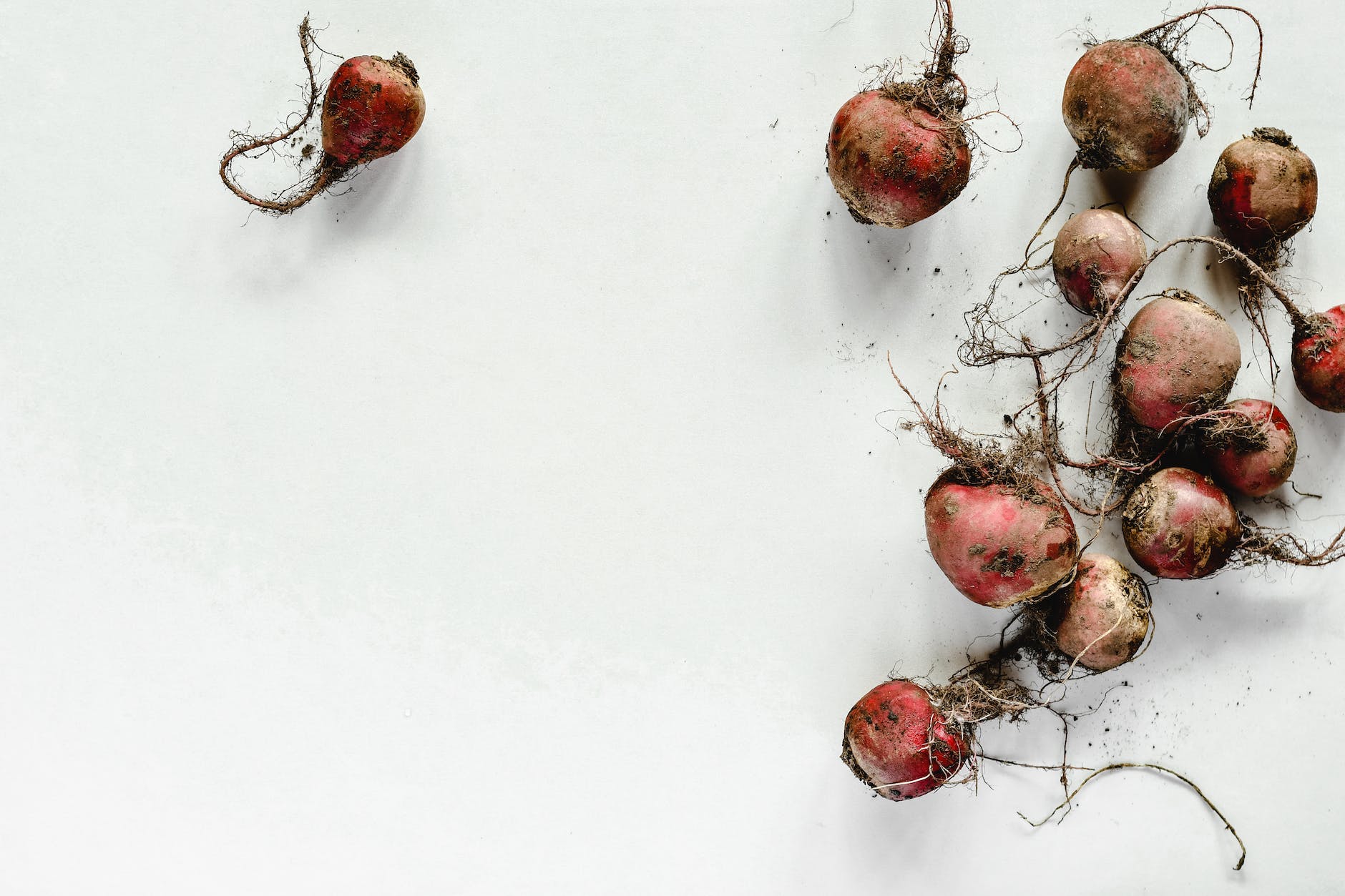
 Raw1 month ago
Raw1 month agoWhy Do Raw Beets Irritate My Throat?
-
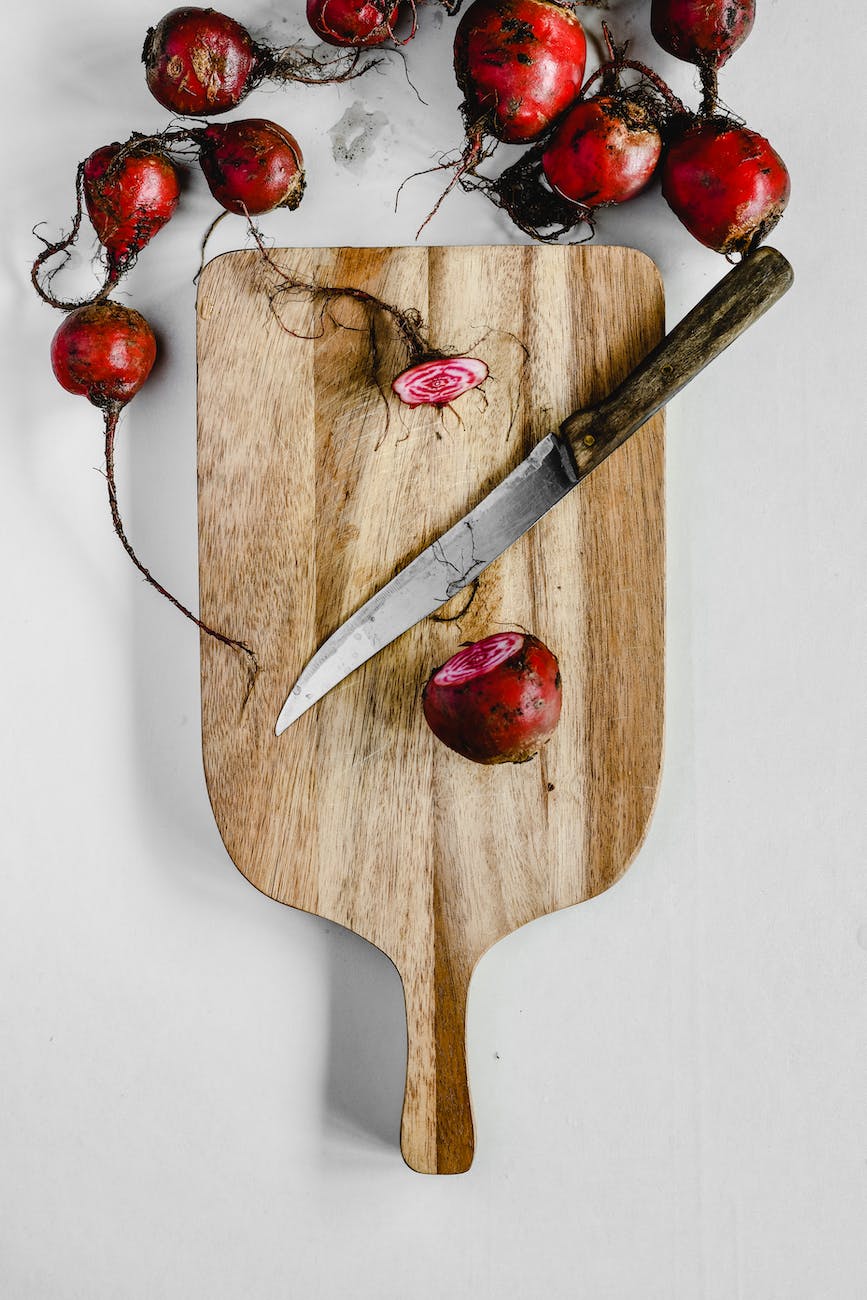
 Beginners Guides1 month ago
Beginners Guides1 month agoIf Beets Are Soft Are They Bad?
-

 Vegan3 months ago
Vegan3 months agoIs Gatorade Zero Healthy? 33 Things You Should Know
-
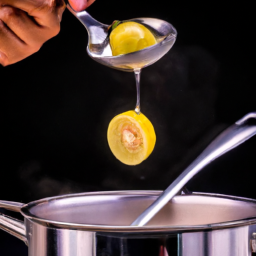
 Juice1 day ago
Juice1 day agoHow To Fix Too Much Lemon Juice In Soup
-
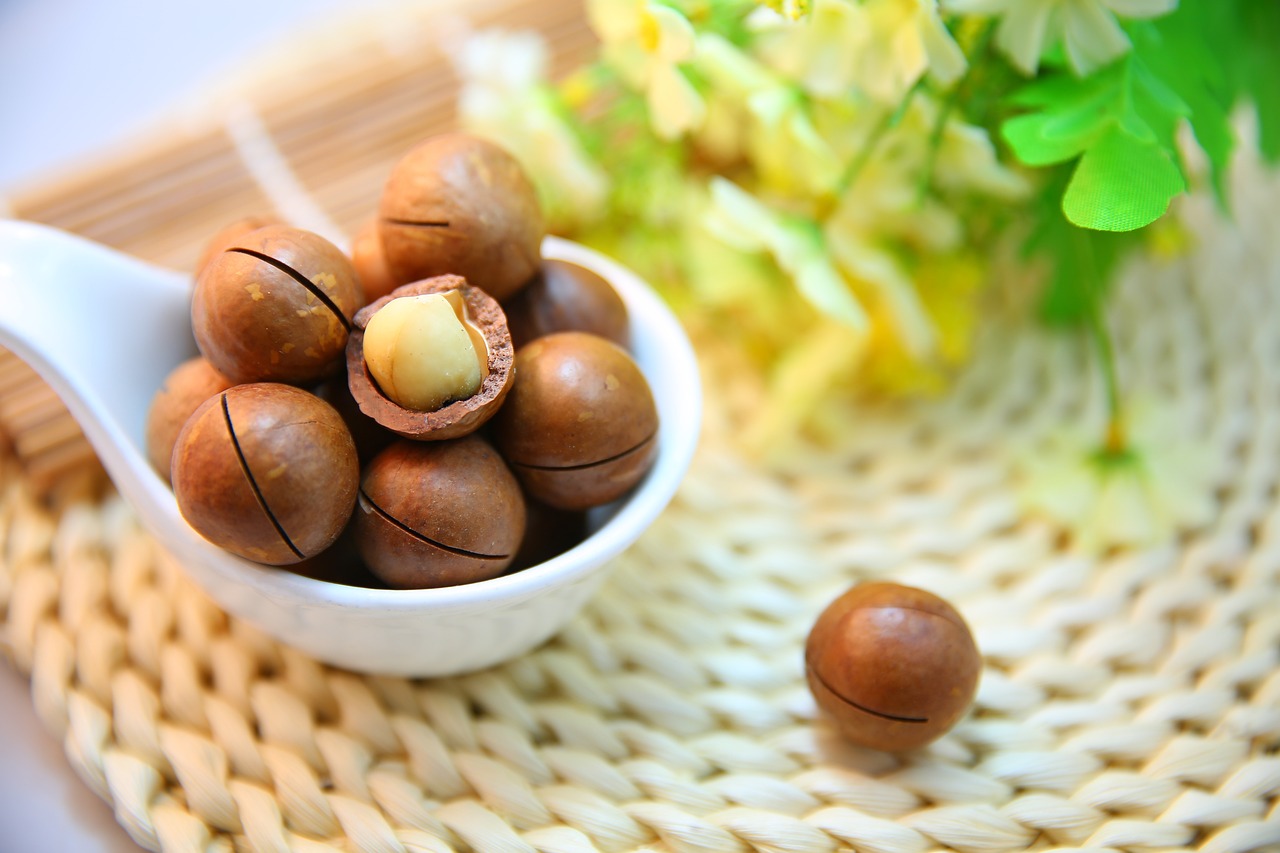
 Raw4 weeks ago
Raw4 weeks agoMacadamia Nuts – Which is Better Nutrition Raw Or Dry Roasted?
-

 Juice3 months ago
Juice3 months agoHow To Make Dmt Vape Juice
-

 Vegan3 months ago
Vegan3 months agoHow to Tell If Your Eggplant is Going Bad by Looking at the Color on the Inside




